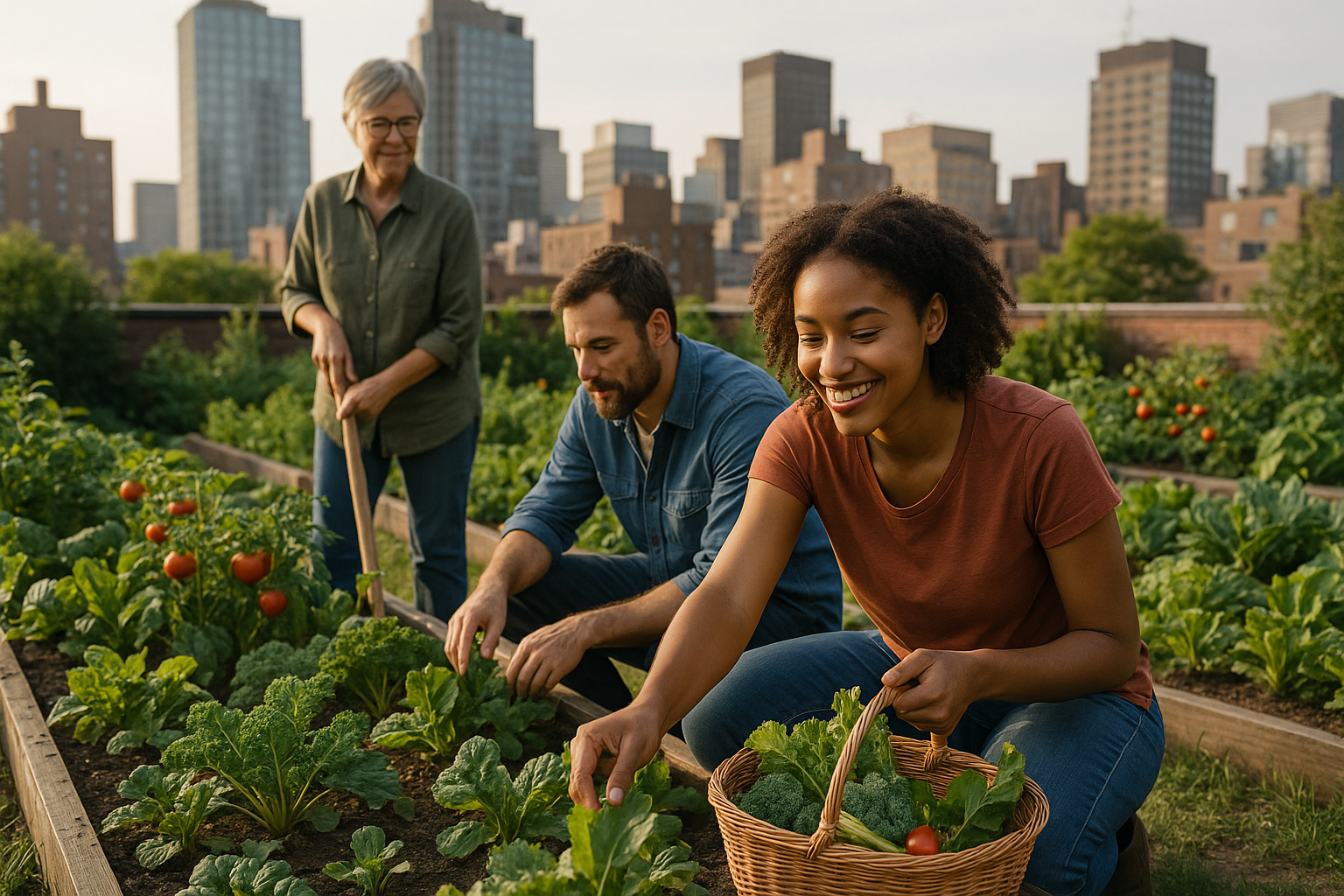"The Social Significance of Modern Urban Farming"
As we grapple with the realities of a rapidly changing world, urban farming is emerging as a significant shift in how we perceive food production and consumption. It’s more than just a trend; it’s a movement that is redefining our relationship with food and community. Read below to delve into the fascinating world of urban farming and its profound impact on modern society.

The Seeds of Urban Farming
Urban farming, as a concept, is far from new. However, its resurgence in recent years, particularly in Western societies, is a fascinating sociological phenomenon. The concept has its roots in ancient civilizations, where city dwellers cultivated small plots of land to supplement their food sources. In more recent history, during World War II, “victory gardens” sprang up in city lots and rooftops to aid war efforts.
Reconnecting with Nature in Concrete Jungles
The resurgence of urban farming is partly a response to our increasing disconnection from nature. As our lives become more digital and urbanized, there’s a growing desire to reconnect with our roots and understand where our food comes from. In an era where food production is often seen as a faceless industry, urban farming allows people to regain control over what they eat, fostering a sense of trust and connection in the process.
A Social Response to Climate Change
Urban farming is also a response to the urgent need for sustainable practices. Increased awareness about climate change and food insecurity have led people to find innovative ways to grow food in an eco-friendly manner. Rooftop gardens, vertical farms, and community plots are not just green spaces; they are tools for social change, promoting sustainable living and reducing our collective carbon footprint.
Urban Farming as a Community Builder
This practice does more than just provide fresh produce. It’s a powerful community builder, fostering social connections in a world often marked by isolation. It transforms otherwise unused urban spaces into vibrant communal areas, bringing people together around a shared purpose. It’s an interesting counter to the individualistic tendencies commonly seen in modern societies, promoting instead collective action and mutual support.
The Future of Food and Society
As we move forward, urban farming could play a significant role in shaping our societies. It’s an interesting convergence of ancient practices and modern needs, providing a solution to some of our most pressing issues – food security, sustainability, and social isolation. The rise of urban farming is a testament to our ability to adapt and innovate, reflecting a society that is willing to learn from its past to build a better future.
In conclusion, urban farming is more than just a trend. It’s a powerful social movement reshaping our relationship with food, nature, and each other. In the midst of a rapidly changing world, it offers a beacon of hope – a testament to human resilience and adaptability. As we look towards the future, it’s clear that urban farming will play a significant role in defining the trajectory of modern society.




